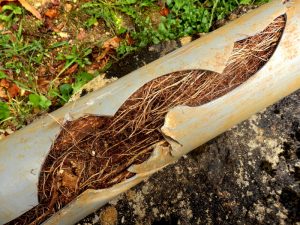
While out of sight (and probably, out of mind), a sewer line problem can leave you with a major inconvenience, not to mention a mess and potentially expensive plumbing repairs. Early detection of sewer line issues is advantageous. But how does a Fort Lee, NJ plumber know that a sewer line needs help?
VIDEO CAMERA PIPE INSPECTION
This service involves the use of a slender fiber optic cable, which is inserted into your pipes with a small camera at the end. This can be used for any of your pipes throughout your entire plumbing system, and allows our professional plumbers to thoroughly inspect your pipes without disrupting them at all.
Video pipe inspection is part of plumbing maintenance, which you should have performed at least once a year. But that doesn’t mean you can’t call to schedule this service on your own. However, how do you know when you need to have your sewer line inspected? Keep reading for some warning signs.
Foul Odors: This is probably the most apparent sign of trouble with your sewer line—the development of foul odors in your home, especially from the drains. If you can smell sewer odors coming from any part of your plumbing, it’s time to have one of our plumbers inspect the situation.
You may be dealing with something as simple as a blockage. Or, you could have a leak due to tree root intrusion. But in some cases, the sewer line pipe has aged to the point that it has begun to corrode, and as a result may require replacement.
Backed Up Drains: One slow-moving or backed up drain in your home isn’t likely cause for immediate concern. It could be something like hair stuck in your bathroom sink, or food scraps in your kitchen sink. However, if you have multiple backed up drains throughout your home, you’re likely looking at a major problem with your sewer line.
Soggy or Bright Green Patches in Your Yard: Have you noticed that there’s one area of your yard that’s more lush and green than others? In the absence of something like a broken sprinkler head, it’s extremely likely you have a leak in your sewer line that is basically fertilizing that area. This, like the other problems mentioned above, can be cause by pipe corrosion, and could require a sewer line replacement.
The best thing you can do when you suspect a problem with your plumbing system is call our pros to set up an inspection ASAP. This can prevent even a small problem from turning into a much bigger one.
When you want quality service and guaranteed satisfaction, call on BZ Dependable Plumbing & Heating Inc.

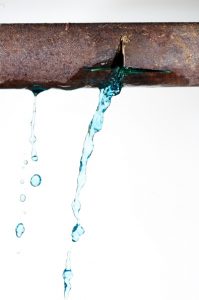 It’s important to know where the water shutoff valves are in your home. Should the plumbing system spring a leak, it’s an inconvenience, but you can certainly go to a dedicated shutoff valve (located beside the toilet, sink, or fixture it services) or turn off the water to the whole house to stop the flow of water and then call in a plumber for help.
It’s important to know where the water shutoff valves are in your home. Should the plumbing system spring a leak, it’s an inconvenience, but you can certainly go to a dedicated shutoff valve (located beside the toilet, sink, or fixture it services) or turn off the water to the whole house to stop the flow of water and then call in a plumber for help.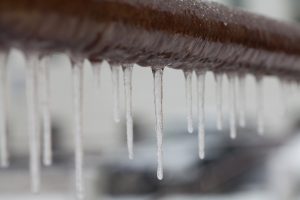
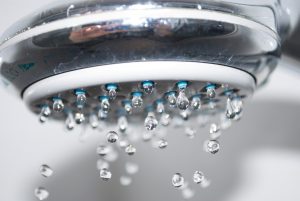 When you’re a renter, you often don’t have to pay for some of the necessities that come into your home, like water. When you own your home, though, you start to see that the bills add up a lot faster than you think. You’re responsible for every drop of water that comes in through the meter, on top of every bit of fuel and electricity you use.
When you’re a renter, you often don’t have to pay for some of the necessities that come into your home, like water. When you own your home, though, you start to see that the bills add up a lot faster than you think. You’re responsible for every drop of water that comes in through the meter, on top of every bit of fuel and electricity you use.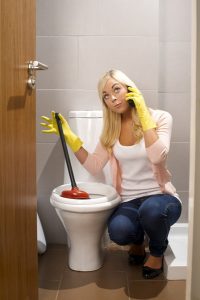 What’s the most annoying plumbing problem you can think of in a home? For many people, it’s a leak in the pipes somewhere or a leak from a faucet. But the good news about a leak is that you can always shut off the water to temporarily get the problem under control. For even more people, the most annoying plumbing problem is one that can lead to mayhem if not fixed properly the first time around: a clogged toilet.
What’s the most annoying plumbing problem you can think of in a home? For many people, it’s a leak in the pipes somewhere or a leak from a faucet. But the good news about a leak is that you can always shut off the water to temporarily get the problem under control. For even more people, the most annoying plumbing problem is one that can lead to mayhem if not fixed properly the first time around: a clogged toilet.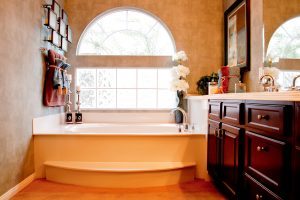 When dealing with plumbing problems in the home, the bathroom is the most common place to have them. It’s the most concentrated point of of the plumbing system in many cases: the spot where three or four outlets at the minimum occupy a very small piece of space. And it sees heavy use every day. It’s the first place you visit when you get up in the morning and the last place you stop at on the way to bed at night. When problems arise there, they can bring your household screeching to a halt very easily. Keeping an eye out for trouble in your bathroom can be a good way to stop problems before they start.
When dealing with plumbing problems in the home, the bathroom is the most common place to have them. It’s the most concentrated point of of the plumbing system in many cases: the spot where three or four outlets at the minimum occupy a very small piece of space. And it sees heavy use every day. It’s the first place you visit when you get up in the morning and the last place you stop at on the way to bed at night. When problems arise there, they can bring your household screeching to a halt very easily. Keeping an eye out for trouble in your bathroom can be a good way to stop problems before they start.